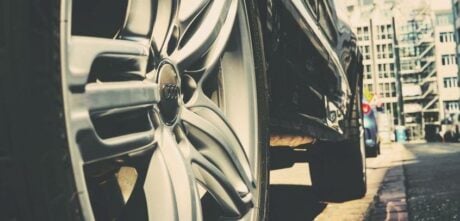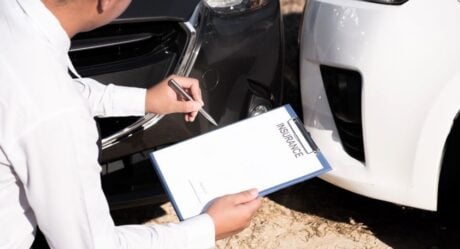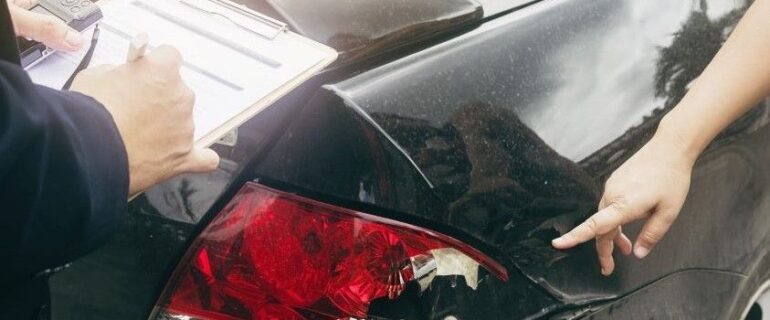Many or all of the products and brands we promote and feature including our ‘Partner Spotlights’ are from our partners who compensate us. However, this does not influence our editorial opinion found in articles, reviews and our ‘Best’ tables. Our opinion is our own. Read more on our methodology here.
GAP insurance is an optional cover that can be beneficial to certain drivers, but with all the other costs involved in owning a car, do you need it?
Owners of new cars, or those who purchased them with car finance or a loan, may find GAP insurance is worth getting as it would offer some protection against the depreciating value of their car. But the final decision on whether to purchase this cover would depend on your individual financial situation and what you would do if your car was written off or stolen.
Read on for some more guidance on when it might be worth getting GAP insurance, and when it might be an unnecessary expense.
» MORE: What is GAP insurance?
Compare Gap Insurance
Whether you lease your vehicle or are looking
for a brand new replacement, see offers for
GAP insurance
Do I need GAP insurance?
It’s not essential for drivers to have GAP insurance as, unlike car insurance, it is not a legal requirement. For some drivers, however, it can be a useful policy should their car get written off or stolen.
If you don’t have GAP insurance, when your car gets written off your car insurer will pay out its current market value and that will be it. You would then be responsible for making up any shortfall between this and the cost of a new car or any loan repayments.
Your car insurance payout would almost certainly be less than the amount you initially paid for your car, but it should cover the cost of replacing your vehicle with an equivalent model of a similar age as the one you lost. So GAP insurance isn’t necessary simply to pay for a replacement vehicle.
But, for some drivers, getting the current value of their car will not be sufficient. This is when they may consider GAP insurance.
GAP insurance may be worth buying if:
You have a brand new car and want a brand new replacement
GAP insurance can be useful protection to have as new cars depreciate very quickly. According to the AA, new cars can lose around 40% of their value by the end of one year and 60% after three years.
The rate of depreciation varies from car-to-car, but it generally slows significantly and levels out as a car gets older.
So, if you bought a brand new car for £30,000, just two years later it could be worth around £15,000. This is what your car insurer would pay in the event of a total loss and, while this would pay for a replacement, it wouldn’t cover the cost of a brand new car of the same model.
If driving a new car is important to you, and you worry about making up the deficit between the insurance payout and the amount you first paid for the car, then GAP insurance may be worth getting.
However, you may not need GAP insurance if your car is less than one year old and you have new car replacement cover with your car insurance (see below).
You are leasing a car
If your lease car is written off, you would still need to make your remaining payments to the leasing company.
Because your car’s value will have depreciated, your car insurance settlement may not be enough to pay the outstanding balance, which is where GAP insurance can help. If you would struggle to make up this shortfall yourself, GAP insurance could pay off the amount you still owe to the lease provider and clear your debt.
You purchased your car on finance or with a personal loan
As with a lease car, if you have a car on finance you will still need to pay back the loan if your vehicle is written off or stolen. But, because of depreciation, for most of your finance agreement you would owe the finance provider more than your car is worth at that time, which means your car insurance settlement is unlikely to clear your loan.
This is particularly true if you put down a small deposit, you’re on a long-term agreement, you’re paying a lot of interest, or you wrote off your car in the early stages of your finance agreement.
For example, you could have bought your car on finance for £20,000. If, after one year, you write it off, you may receive £13,000 from your insurer but have £15,000 left to pay on your agreement. You would then need to pay the remaining £2,000 yourself.
GAP insurance can cover this difference and repay the amount left outstanding on your agreement, ensuring you are not left paying for a car you can no longer use.
Drivers with PCP deals, in particular, may find GAP insurance worthwhile. Because they would no longer have the option of returning their car to the provider, they would need to pay the balloon payment, in addition to their other remaining payments. This could mean you are left with a sizeable lump sum to repay that your car insurance payout won’t cover. If you would struggle to afford to pay this debt, not to mention the cost of a new car, then GAP insurance may be worth considering.
Can I buy GAP insurance on a used car?
While GAP insurance is most useful for new cars as they depreciate most quickly, you can get GAP insurance on used vehicles, including those bought on finance or outright from a dealer or private seller.
Most GAP insurance providers will set age and mileage limits so very old cars are unlikely to be eligible for cover.
But, although you can get GAP insurance for used cars, it doesn’t necessarily mean you should. Older cars are at less risk of depreciation, so you may decide that GAP insurance isn’t worth the extra cost.
You may not need GAP insurance if:
You have an older, second-hand vehicle.
Because depreciation slows after the first few years, there is less need to get GAP insurance if you purchase a used car as its value won’t drop as much. The difference between the amount you paid for the vehicle and the market value your car insurer would pay if it was written off is likely to be relatively small, so GAP insurance would bring little, if any, benefit.
You’re not concerned about getting a brand new replacement
If you don’t mind replacing your written-off car with a cheaper, used car, then GAP insurance is likely to be an unnecessary expense. Your car insurance settlement should pay for an equivalent second-hand model so, unless it is important to you to get back the original amount you paid, you may not need GAP insurance.
You can afford to make up the shortfall yourself
If you have the financial capacity to clear any remaining finance payments and/or buy a replacement car without the help of GAP insurance, then you may not need to get it.
However, it’s important to have a plan in case your circumstances change, so sometimes it may still be worth buying GAP insurance to make sure you have that protection and peace of mind should something go wrong.
You have a brand new car and new car replacement cover
If you have a brand new car (normally less than a year old), many comprehensive car insurance policies will offer new car replacement cover for the first 12 months, maybe longer. This makes GAP insurance less necessary as your car insurer would give you a brand new like-for-like replacement vehicle in the event of a write-off.
However, you should always check for any exclusions in your car insurance policy and, because it only applies for a limited period, you may want to get GAP insurance once it expires.
Some GAP insurers will allow you to defer the date your GAP policy starts, so you could still purchase it when you get your new car and have the cover start later.
Alternatively, you could look into taking out a GAP insurance policy after your new car replacement cover expires, although your choices of policies will be more limited if you wait.
Because Return to Invoice and Vehicle Replacement GAP insurance need to be purchased within a certain number of days of getting your new car, if you choose to buy GAP insurance after this time you may only be able to get Return to Value cover. This would refund you the value of your car at the time you took out the policy.
Balancing the risk
Even though GAP insurance is not for everyone, you should not rule it out purely on the basis that you don’t think you will write off your car.
While you may think the chances of writing your car off are slim, a 2017 study by Churchill found that around 400,000 vehicles are written off each year. That averages out at approximately one every 90 seconds.
Because of this risk, however small, you should have a plan of what you will do if the worst does happen to your car. Whether that’s replacing it with a cheaper second-hand model, using your own money to buy a car of your choice or to clear your finance, or taking out GAP insurance, it is a good idea to be prepared for different eventualities.
If you buy GAP insurance and end up not needing to make a claim, then all you’ve lost is the cost of the premium. But if you don’t have GAP insurance and you’re unlucky enough to write off your newly financed car, you could be left owing thousands to a finance company.
Image source: Getty Images
Dive even deeper

What is GAP insurance? And what does it cover?
GAP insurance is an optional cover that can protect you against depreciation if your car is stolen or written off. Find out more about what GAP insurance covers, how it works and how it could help you.

Does GAP Insurance Cover Negative Equity?
GAP insurance covers the negative equity on a car finance deal if you owe more than the car is worth at the time of write-off. However, you may need to buy an extra policy if you want to cover negative equity carried over from a previous contract.

Buying GAP Insurance: Your Essential Guide
You can buy GAP insurance from an online insurer or from a dealership, but there are certain rules about when dealers can sell you a policy. Depending on the policy you choose, you may also need to get cover within a number of days of buying your car.

